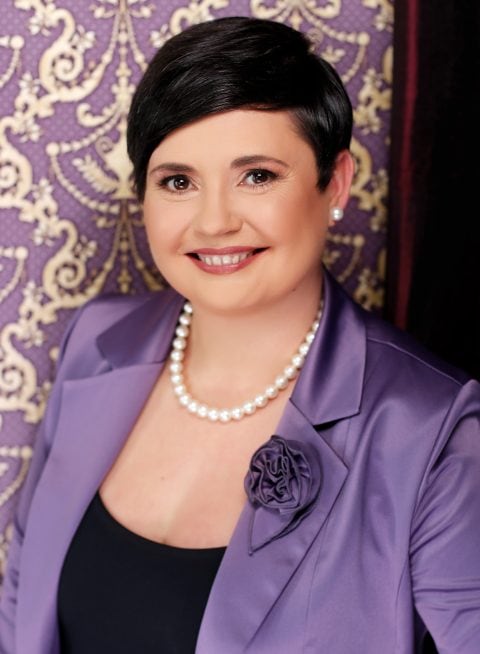Is it harder to leave or to stay and do the right thing? This was the question going through my mind on a cold evening before Christmas, when I first joined a group of Romanians gathering in a Prague pub to listen to Cristi Danileț, a judge with the Romanian Superior Council of Magistracy (CSM) and one of the most vocal speakers on the reforms of the Romanian justice system and the country’s struggle against corruption.
Danileț, who visited the Czech Republic in 2014 in the framework of a professional exchange program, returned to Prague at the beginning of March. This time, he met the community in a more official set-up organized by the Association of Romanians in the Czech Republic.
He reached out to the local community friendly and informally. „That’s what I do. I notice that many people have their vision of justice created only through the media. I think we need to do more to let people know how things really work,” he says.
An uphill battle
For two hours, Danileț commanded the attention of a few dozens of people speaking about the roots of the justice reform that started in Romania in 2005, under the pressure of adhering to the European Union.
„The first step we needed to take was to free the justice organs from political influence. For example, the Superior Council of Magistracy (SCM), which is the capital body in assessing the competencies and career development of Romanian justice reps – judges and state prosecutors – was in 2004 under the full control of the Ministry of Justice. We needed to change that in order to achieve more independency,” he says.
Numerous steps had to be taken. The majority of judges active in the Romanian system in 2004 had been selected prior to the Revolution under criteria that were no longer in line with the vision of a politics-free justice.
„We decreased the retirement age radically and we raised pensions for judges willing to leave. At a certain point, so many judges understood that they needed to leave that we were struggling to find fresh replacements,” he says.
Freed from political influences, the justice mechanism started to roll. Numerous investigations were launched, including those involving high political profiles.
The coast was however not clear yet.
„There was a gap in the law allowing lawyers to attack the constitutionality of allegations brought against suspects and thus send the whole file to the Constitutional Court. This way the trial could be delayed by years,” Danileț says.
It is why major cases of corruption ending in conviction started to appear only around 2012. According to the Romanian High Court of Cassation and Justice (ICCJ), in February 2013 there were 29 cases of major corruption investigations involving 31 top-end political names including the former minister of youth and sports Monica Iacob Ridzi, former minister of economy Codrut Seres, former minister of agriculture Decebal Traian Remes, former minister of justice Tudor Chiuariu or the businessman and elected European EM Gigi Becali.
The first major political name convicted in a case of corruption was the former Prime Minister Adrian Nastase. On January 6, 2014 he was definitely sentenced at four years behind bars.
Also in August 2014 the once intangible founder of the media empire Intact and former senator Dan Voiculescu received ten years with execution and extensive confiscation of property. The dices have been thrown and keep on rolling.
Danileț is not forgetting his own ranks. „It has been heartbreaking to see that a few major cases also involved judges and prosecutors,” he says, pointing at the almost 100 cases instrumented against law enforcers over the last few years. „On the other hand, let’s not forget what is really important, that such cases have been open and are under trial. This could not have happened a few years ago,” he says.
Corruption is not petty theft
One of the biggest problems in fighting corruption in Romania wasn’t investigating corruption cases as such but was punishing it accordingly.
“For most judges it was almost a menial issue: no one died, no one was hurt so the punishment couldn’t be too significant. This is why we saw many corruption cases sentenced with two to four years behind bar. There is no need to say that such sentences could not act to discourage people from engaging into further acts of corruption,” Danileț says.
This is why the law had to be revisited and the concept of extended property confiscation had to be introduced. “People engaging in corruption listen to one thing only: money. We needed to create a mechanism that hit them there where it really hurt them the most: in their pockets,” he said.
Most recently, the attention of the Romanian media has been caught by the case of Elena Udrea, former minister of tourism, 2014 presidential candidate and MP. She was arrested on February 11, 2015, on allegations of corruption and money laundry.
Numerous speculations were triggered by the large amount of arrest mandates issued on Udrea’s name in a record time – three more cases on bribe allegations were open immediately after the former official’s arrest. “It’s an excess and a unique situation in the history of the Romanian justice,” Udrea’s defense commented.
„What’s the difference between fight against corruption and witch hunt,” I ask Danileț.
„Well, as long as we have a conviction rate of over 90 percent, I dare saying that what is going on in Romania is fight against corruption,” he says.
Romanian media: part of the problem?
The local media isn’t always a solid supporter of the reform of justice in Romania, Danileț argues.
And he knows what he’s talking about. In 2012-2014 he was the target of repeated attacks in traditional and online media for his vocal public stances that could be interpreted as support for Traian Basescu, then Romanian president.
“Unfortunately there are situations when we cannot speak of media objectivity or fact-based reporting. People should really use several sources of information to build their own opinion,” he says.
In an attempt to counteract the lack of balance of media reports Danileț launched his own blog.
„I use this platform to answer people’s questions on matters of justice. I see that people need facts, as opposed to the bombastic headlines promoted in the media. While I am fully aware that I cannot comment on anything on undergoing cases on which I have no more information than any other citizen, I feel it is my duty to use the online space to help people to understand the facts and thus change their perception of the justice,” he says.
At the beginning of March 2015 Danileț’s Facebook account had some 11 259 followers.
He also backed the initiative of promoting the new Romanian Penal Code, which became valid in January 2014, in local schools. The booklet “Where there is law there is no haggling” has been distributed to children.
Danileț volunteered to hold speeches on justice for young students at law schools as well. “It all starts in school. If we want to change something, we really need to start with transforming the mentality of those who are joining now the justice system,” he says.
More and more Romanian political figures use the power of online and social media to counterbalance the overwhelming majority of opinion created by the mainstream media.
One of them is the newly elected Romanian president Klaus Iohannis, who has been actively communicating his deeds through Facebook (1 492 077 followers of his public figure page as of March 7, 2015).
Another young Romanian political figure, the European MP Siegfried Muresan, is also actively promoting his work via social media and communicating with his constituents directly. His public figure page marks over 13 000 followers.
Asked about how his fellow colleagues perceive his communications approach, Danileț says that there is little to no support.
„Some don’t understand why I do it. Some believe that I must have some sort of hidden agenda. It’s not easy. But it’s the right thing to do. I know it will take time. But, maybe, one day, when things go well, we can convince more Romanians that there is hope and that you can return home,” he concludes.


